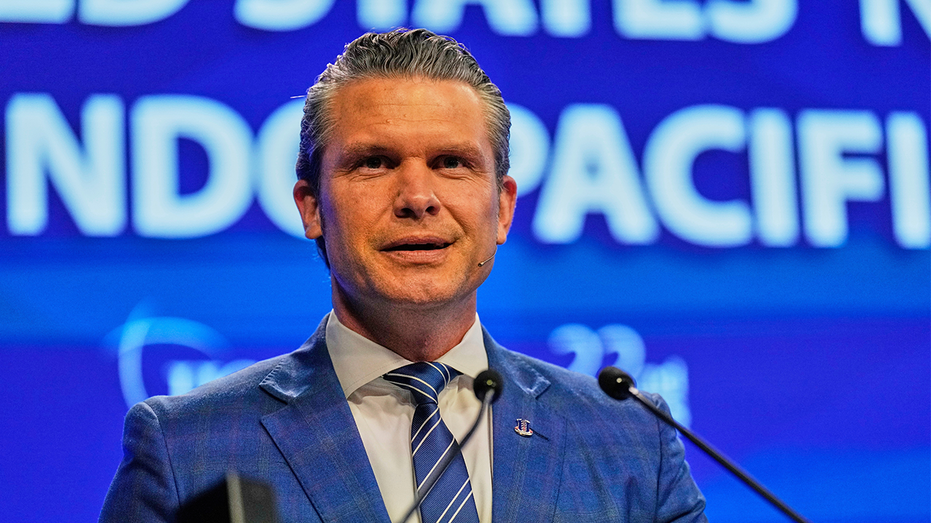China Criticizes Hegseth for Calling Country a Threat, Accuses Him of Promoting 'Cold War Mentality'
China condemns U.S. Defense Secretary Hegseth's "vilified" comments, calling them an unfounded threat to regional stability in the Indo-Pacific.

China issued a sharp rebuke on Sunday against U.S. Defense Secretary Pete Hegseth following his recent remarks at the Shangri-La Dialogue security conference in Singapore. The Chinese Foreign Ministry denounced Hegseth’s statements as “filled with provocations” and accused him of perpetuating a “Cold War mentality” by characterizing China as a growing threat in the Indo-Pacific region.
In an official statement, a spokesperson for the ministry charged that Hegseth had “deliberately ignored the call for peace and development” from countries across Asia, opting instead to frame China as a destabilizing force. The spokesperson added, Hegseth vilified China with defamatory allegations, and falsely called China a ‘threat.’ The remarks were filled with provocations and intended to sow discord.
The Foreign Ministry asserted that “China deplores and firmly opposes them and has protested strongly to the U.S.” The statement went further, arguing that no nation other than the United States deserves to be considered a hegemonic power, asserting, The U.S. is the primary factor undermining peace and stability in the Asia-Pacific.
During his speech a day earlier, Hegseth emphasized that the U.S. would strengthen its defense posture in the Indo-Pacific to counter what he described as “rapidly developing threats from China,” especially regarding Taiwan. He stated, The Chinese army is rehearsing for the real deal. We are not going to sugarcoat it — the threat China poses is real. And it could be imminent. Hegseth also warned that China is not merely building up its military but is “actively training for” an operation against Taiwan on a daily basis.
Addressing these concerns, the Chinese Foreign Ministry reiterated that Taiwan is an internal matter for China, warning the U.S. against using the situation as leverage or attempting to interfere. The U.S. must never play with fire on this question, the statement said, urging Washington to adhere strictly to the “one-China principle” and cease support for what it calls ‘Taiwan independence’ forces.
The ministry also accused the U.S. of exacerbating tensions in the South China Sea through the deployment of offensive weaponry, warning that such actions risk turning the region into a “powder keg.” The statement insisted that there have been no issues regarding freedom of navigation or overflight in the area, emphasizing that China has always been committed to working with countries concerned to properly handle differences through dialogue and consultation, and that the U.S. is the main factor destabilizing the region.
Chinese Defense Ministry spokesperson Zhang Xiaogang echoed these criticisms, describing Hegseth’s comments as distortions of China’s policy positions and calling for the U.S. to show greater respect for regional efforts to maintain peace and stability.
Despite the contentious rhetoric, Hegseth maintained that U.S. allies in the Indo-Pacific must also take greater responsibility for their own defense. We ask, and indeed we insist, that our allies and partners do their part on defense, he said in Singapore. Sometimes that means having uncomfortable and tough conversations.
The escalating war of words comes amid ongoing economic negotiations between the world’s two largest economies. Although both sides recently agreed to a temporary 90-day reduction in tariffs to facilitate further talks, the broader relationship remains strained. In a recent online statement, former U.S. President Donald Trump signaled a tougher approach toward China on trade, accusing Beijing of reneging on previous commitments and vowing to take a harder line moving forward.
As diplomatic tensions continue to rise, the Indo-Pacific region finds itself at the center of a widening rivalry between the U.S. and China, with both sides insisting they seek stability even as they trade accusations of provocation and destabilization.




